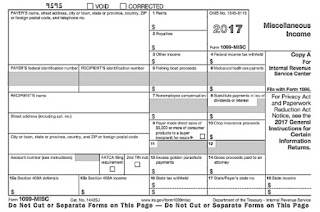Workers Who Are Household Employees
A household employee is an employee hired to do household
work. The worker is an employee if you can control both what and how work is
done. It does not matter whether the work is full time or part time or that the
worker was hired through an agency or association. It also does not matter
whether the worker is paid on an hourly, daily, or weekly basis, or by the job.
Note: If the
worker usually provides his or her own work tools and offers services to the
general public, he or she is an independent contractor and not a household
employee.
Household Workers
Some examples of workers who do household work include the
following.
• Babysitters
• Housekeepers
• Caretakers
• Maids
• Drivers
• Private nurses
• Health
aides • Yard workers
• House
cleaning workers
Workers Who Are Not Household Employees
If only the worker can control how the work is done, the
worker is not a household employee but is self-employed. A self-employed worker
usually provides his or her own tools and offers services to the general public
as an independent business. A worker who performs child care services in his or
her home generally is not a household employee. If an agency provides the
worker and controls what work is done, the worker is not a household employee.
Household Employment Taxes
Form W-2 must be filed for each household employee who was
paid Social Security or Medicare wages of $1,800 or more, or wages of any
amount if federal income tax was withheld.
Taxpayers who are required to file Schedule H with their
2013 individual tax returns must obtain an Employer Identification Number (EIN)
by January 31, 2014.
FICA
The Social Security tax pays for old-age, survivors, and
disability benefits for workers and their families. The Medicare tax pays for
hospital insurance. Both the employer and the household employee may owe Social
Security and Medicare taxes. For 2013, the employer share is 7.65% (6.2% for
Social Security tax and 1.45% for Medicare tax) of the employee’s FICA wages.
For 2013, the employee’s share is 7.65% (6.2% for Social Security tax and 1.45%
for Medicare tax). The employer is responsible for remitting both the
employee’s and employer’s share of the taxes. Typically, the employee’s share
is withheld from the employee’s wages and submitted with the employer’s payment.
Figuring FICA taxes
FICA taxes on Social Security and Medicare wages paid to
household employees are figured by the employer.
If you pay your household employee cash wages of $1,800 or
more in 2013, all cash wages you pay to that employee in 2013, up to $113,700,
(regardless of when the wages were earned) are Social Security wages and all
cash wages are Medicare wages. However, any noncash wages paid do not count as
FICA wages.
If you pay the employee less than $1,800 in cash wages in
2013, none of the wages are FICA wages and neither you nor the employee will
owe FICA taxes on those wages.
Cash Wages
Cash wages include wages paid by check, money order, etc.
Cash wages do not include the value of food, lodging, clothing, and other
noncash items you give your household employee. However, cash you give your
employee in place of these items is included in cash wages.
Wages Not Counted
Do not count wages paid to any of the following individuals
as FICA wages.
1) Your
spouse.
2) Your
child who is under age 21.
3) Your
parent. Exception: Count these wages
if your parent cares for your child who is either under age 18 or has a
physical or mental condition that requires personal care by an adult, and your
marital status is either divorced, widowed, or living with a spouse whose
physical or mental condition prevents him or her from caring for your child.
4) An
employee under age 18 at any time during the year. Exception: Count these wages if providing household services is the
employee’s principal occupation. If the employee is a student, providing
household services is not considered to be his or her principal occupation.





